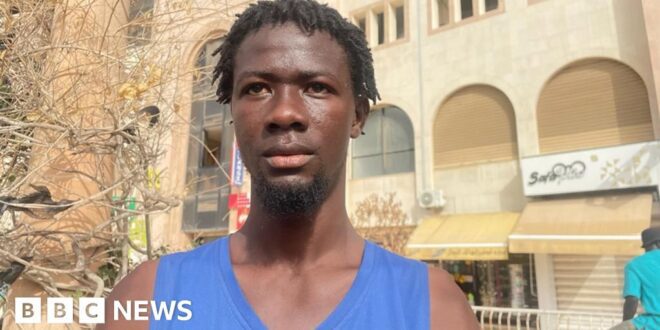The Growing Migration Crisis in North Africa
The number of migrants attempting to cross the Mediterranean Sea from North Africa to Europe is increasing at an alarming rate. Tunisia has become the main launching point for these perilous journeys, with migrants risking their lives to reach a better future. Mohammed “BB” Lain Barrie from Sierra Leone is among these hopeful individuals, dreaming of becoming a basketball player in the United States to provide for his family.
The Dangers Faced by Migrants
However, just a few miles away lies the chilling reality. Fishing nets in the port of La Lusa are often accompanied by the lifeless bodies of migrants whose poorly constructed boats sank or capsized during the journey. Wahid Dahech, known as the “corpse finder,” is responsible for alerting the authorities whenever a body is discovered. The risks posed by these dangerous voyages have not deterred numerous individuals from paying exorbitant amounts to secure a place on these overcrowded boats.
The Impact on Europe
Italy has experienced the largest influx of migrants, with over 72,000 people making the journey so far this year, more than double the previous year’s total. These migrants, predominantly from sub-Saharan Africa, are fundamentally changing the political landscape in Europe. The rise of right-wing parties, such as Italy’s Giorgia Meloni’s party and Germany’s AfD party, demonstrates the growing anti-migrant sentiment.
A Controversial Response
As Italy’s new prime minister, Meloni plans to enforce a naval blockade to prevent further arrivals, while EU President Ursula von der Leyen offers financial support to countries like Tunisia in exchange for their cooperation in stemming the migration flow. However, this approach is not without controversy, as Tunisia’s president, Kais Saied, has been accused of promoting racial hatred. In addition, Germany is grappling with its own challenges, as the far-right AfD party gains popularity, potentially posing a threat to Chancellor Scholz’s governing Social Democrats.
The Dynamics in Germany
Rosenheim, located near the Austrian border, is often the first destination for migrants arriving in Germany. The town experienced the initial wave of Syrian refugees in 2015, marking the beginning of a crisis that saw over a million refugees welcomed into the country. Despite the need for additional labor due to shortages, German voters are increasingly blaming migrants for issues such as healthcare queues and housing shortages.
The Paradox of Europe’s Labor Shortage
Ironically, Europe, particularly Italy and Germany, requires more workers to fulfill its labor needs. The German government even contemplates allowing asylum seekers, who are typically forbidden from working until their claims are processed, to join the workforce to address the severe labor shortages. However, the growing pressure from voters demanding priority for their own citizens is complicating efforts to address the labor crisis.
The Changing Political Landscape in Europe
The migrant crisis is shaping the politics of Europe, leading to the collapse of governments and the adoption of stricter immigration policies. The Dutch government, for instance, faced a collapse due to disagreements over new immigration restrictions. Even traditionally liberal Scandinavian nations like Denmark have implemented tough measures, including the relocation of asylum seekers outside the EU while their cases are reviewed.
The dreams and aspirations of migrants, whether it be pursuing sports careers, providing for families, or escaping conflict, evoke sympathy. However, this individual sympathy has not translated into collective willingness to open Europe’s doors to those seeking refuge. On the contrary, prevailing sentiments are pushing for stricter immigration control, precisely the opposite of what many migrants hope for.
 Mind Uncharted Explore. Discover. Learn.
Mind Uncharted Explore. Discover. Learn.
